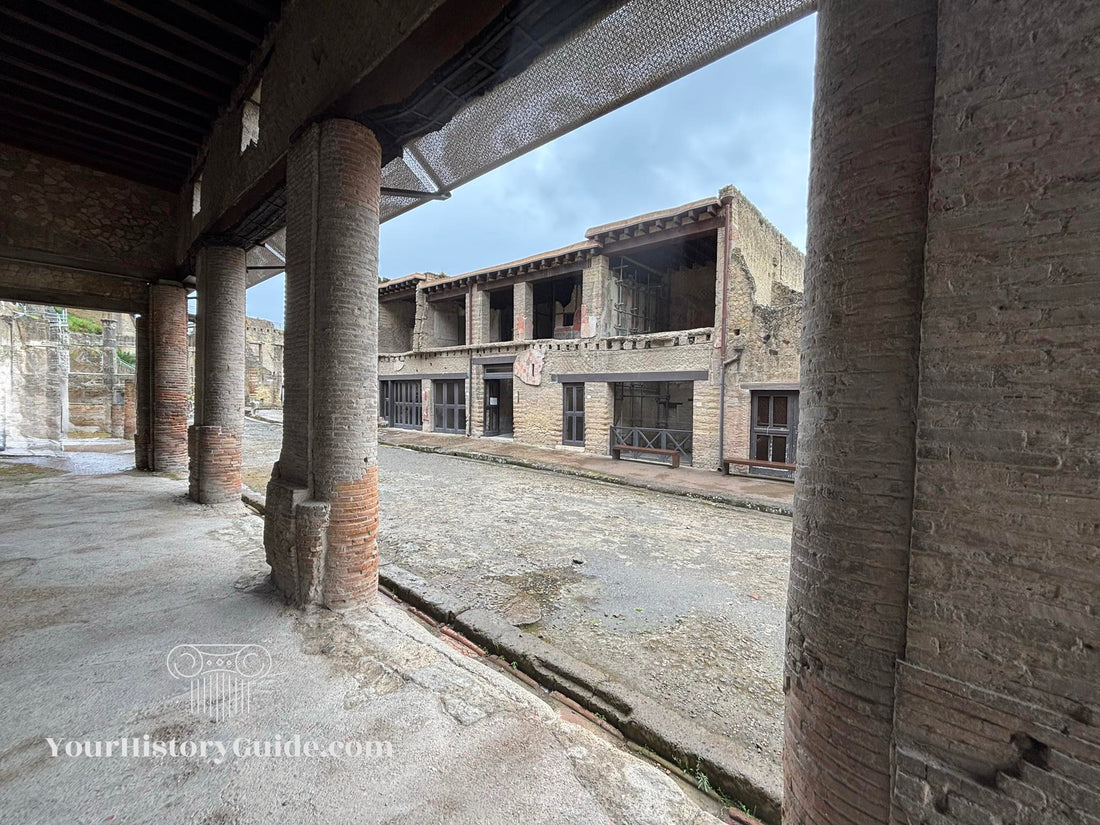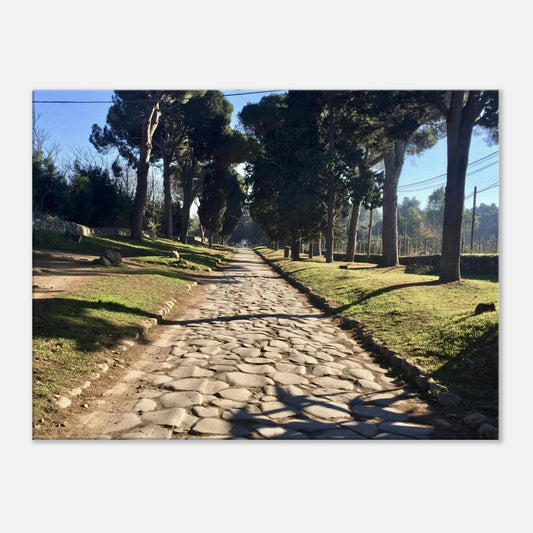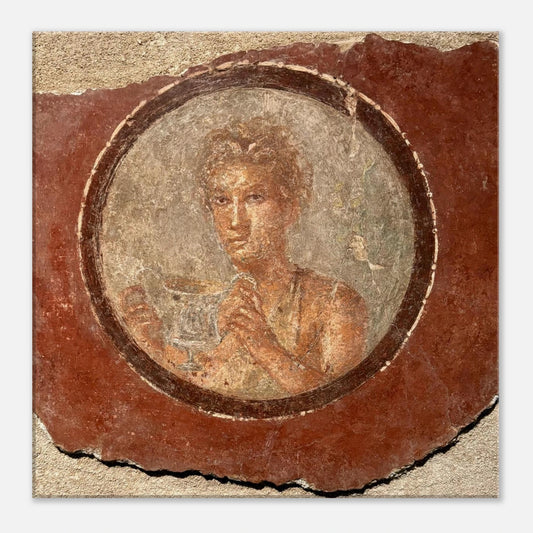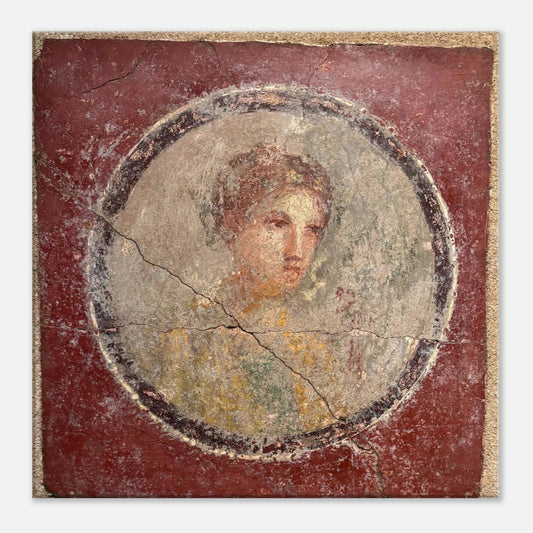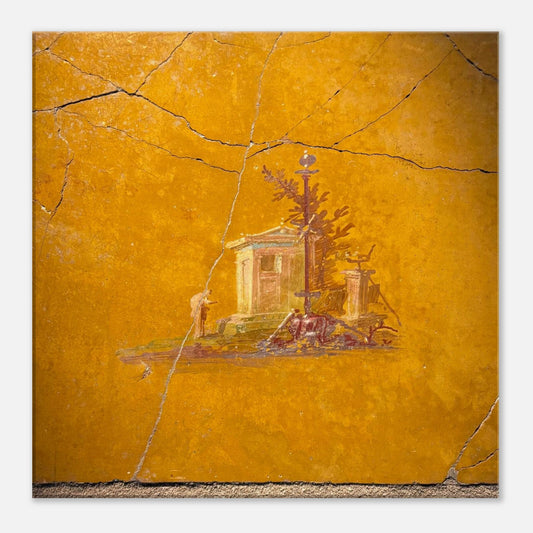The Remarkable Case of Justa from Ancient Herculaneum
Lindsey HallWhilst researching the House of the Bicentenary, I discovered an extraordinary testament to the lives of ordinary people in antiquity; a documented custody battle over a teenage girl named Justa that reveals the complex realities of freedom, family, and fortune in Roman society.
A Child Born Between Worlds
In 62 AD, Petronia Vitalis, a slave in the household of Gaius Petronius Stephanus and his wife Calactoria Themis, gave birth to a daughter she named Justa. Around the same time, Petronia received her freedom from her owners; a moment that would set in motion a legal drama spanning nearly two decades.
As was common in the ancient world, Petronia continued serving her former masters even after manumission. The newborn Justa became the darling of the household, raised not as a slave child but as a beloved daughter. For a decade, this unconventional family arrangement flourished, with the freed mother, her growing daughter, and their former owners sharing what appeared to be genuine affection and mutual prosperity.
When Love Turns to Legal Battle
Around 72 AD, harmony shattered. The exact cause remains lost to history, but relations between Petronia and the family deteriorated so severely that she decided to leave the household, and take her twelve-year-old daughter with her.
The family had other plans. They fought to retain custody of Justa, initiating legal proceedings that would drag on for years. Initially, Petronia prevailed, though she was apparently required to make some form of compensatory payment to secure her daughter's freedom. Mother and daughter departed together, seemingly victorious.
But their triumph was short-lived.
Fortune and Tragedy Intertwined
Two devastating events soon transformed the case entirely. First, Petronia Vitalis died unexpectedly, leaving her teenage daughter orphaned but wealthy; the enterprising freedwoman had built a considerable fortune during her years of freedom. Second, Calactoria Themis was widowed, losing both her husband and perhaps her financial security.
Whether driven by genuine grief, financial desperation, or calculated opportunism, likely some combination of all three, Calactoria launched new legal proceedings. She alleged that Petronia had actually been freed after Justa's birth, making the girl technically still her property. If successful, this would give Calactoria not only custody of the child she had helped raise, but control over Justa's substantial inheritance.
A Case for the Ages
The complexity of the case, involving questions of slave law, manumission timing, property rights, and child custody, required expertise beyond local magistrates. In 75 AD, the matter was referred to Rome itself, where witnesses testified and depositions accumulated in what must have been one of the era's most intricate legal proceedings.
For four years, as Justa grew from child to young woman, her fate hung in the balance of Roman jurisprudence. When Mount Vesuvius erupted in 79 AD, burying Herculaneum beneath volcanic ash, the case remained unresolved. We will never know whether Justa won her freedom or lost everything to her former household.
A Voice from the Ashes
What makes this story possible is an archaeological miracle. When excavators uncovered the House of the Bicentenary, they found a carbonised writing box in an upstairs room, its documents preserved by the very catastrophe that ended Justa's story. These fragile papyri give us an unprecedented window into the intimate struggles of an ordinary Roman family; the hopes, betrayals, and legal machinations that shaped one young woman's life nearly two millennia ago.
Justa's story reminds us that behind the grand narratives of emperors and conquests lay countless personal dramas of freedom and bondage, love and loss, that were no less meaningful to those who lived them. In the preserved documents of this ancient custody battle, we glimpse not just legal history, but the universal human experiences that connect us across the centuries.
